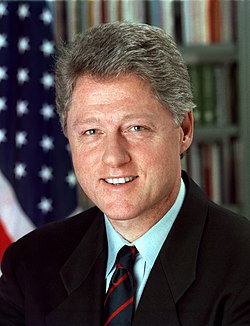
Introduction
Bill Clinton, the 42nd President of the United States, remains a significant figure in American political history. His presidency from 1993 to 2001 was marked by economic prosperity, social reforms, and personal controversies. Understanding Clinton’s legacy is important as it provides context to current political dynamics and the evolution of policies that continue to shape the nation.
Impact of Clinton’s Presidency
The 1990s were characterized by a robust economy, low unemployment rates, and budget surpluses, achievements largely attributed to the economic policies implemented during Clinton’s presidency. The North American Free Trade Agreement (NAFTA), which took effect in 1994, exemplified his efforts to promote free trade; however, it also drew criticism for its impact on American jobs. His administration made strides in welfare reform with the Personal Responsibility and Work Opportunity Reconciliation Act of 1996, aiming to reduce dependency on government assistance.
Clinton’s leadership was also notable for its efforts in healthcare reform, although the comprehensive plan proposed by his administration ultimately failed to pass. He shifted focus to smaller-scale initiatives like the Children’s Health Insurance Program (CHIP), which expanded healthcare coverage for millions of children. Clinton’s commitment to education was reflected in his initiatives to promote public school funding and the establishment of the AmeriCorps program, designed to engage young Americans in service to their communities.
Controversies and Challenges
No discussion of Bill Clinton is complete without addressing the numerous controversies that defined his presidency. The most infamous of these was the Monica Lewinsky scandal, leading to Clinton’s impeachment by the House of Representatives in 1998 on charges of perjury and obstruction of justice. He was acquitted by the Senate and completed his second term, yet this chapter remains a significant part of his legacy.
Post-Presidency Influence
Since leaving office, Bill Clinton has remained active in various initiatives through the Clinton Foundation, focusing on global health, climate change, and economic development. He has also played a role in Democratic politics, campaigning for numerous candidates and advocating for policies aligned with his administration’s values.
Conclusion
Bill Clinton’s presidency encompasses a blend of significant achievements and profound challenges. As political discourse in the United States continues to evolve, Clinton’s approach to governance, his policies, and his ongoing influence provide essential insights into the trajectory of American politics. Future generations will examine his legacy not only for its immediate effects but also for how it informed subsequent political strategies and national values.



